
The member states of the United Nations comprise 193 sovereign states. The United Nations (UN) is the world's largest intergovernmental organization. All members have equal representation in the UN General Assembly.

United Nations Security Council resolution 1244, adopted on 10 June 1999, after recalling resolutions 1160 (1998), 1199 (1998), 1203 (1998) and 1239 (1999), authorised an international civil and military presence in the Federal Republic of Yugoslavia and established the United Nations Interim Administration Mission in Kosovo (UNMIK). It followed an agreement by Yugoslav President Slobodan Milošević to terms proposed by President of Finland Martti Ahtisaari and former Prime Minister of Russia Viktor Chernomyrdin on 8 June, involving withdrawal of all Yugoslav state forces from Kosovo.
United Nations Security Council Resolution 139 was adopted unanimously on June 28, 1960. After examining the application of the Federation of Mali for membership in the United Nations, the Council recommended to the General Assembly that the Federation of Mali be admitted.
United Nations Security Council Resolution 335, adopted unanimously on June 22, 1973, after separately considering their applications, the Council recommended to the General Assembly that both the German Democratic Republic and the Federal Republic of Germany be simultaneously admitted.

United Nations Security Council resolution 702, adopted without a vote on 8 August 1991, after examining separately the applications of the Democratic People's Republic of Korea and the Republic of Korea for membership in the United Nations, the Council recommended to the General Assembly that North Korea and South Korea be admitted.

United Nations Security Council resolution 703, adopted without a vote on 9 August 1991, after examining the application of the Federated States of Micronesia for membership in the United Nations, the Council recommended to the General Assembly that Micronesia be admitted.

United Nations Security Council resolution 704, adopted without a vote on 9 August 1991, after examining the application of the Marshall Islands for membership in the United Nations, the Council recommended to the General Assembly that the Marshall Islands be admitted.

United Nations Security Council resolution 709, adopted without a vote on 12 September 1991, after examining the application of the Republic of Estonia for membership in the United Nations, the Council recommended to the General Assembly that Estonia be admitted.
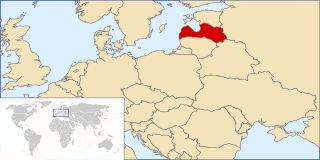
United Nations Security Council resolution 710, adopted without a vote on 12 September 1991, after examining the application of the Republic of Latvia for membership in the United Nations, the Council recommended to the General Assembly that Latvia be admitted.
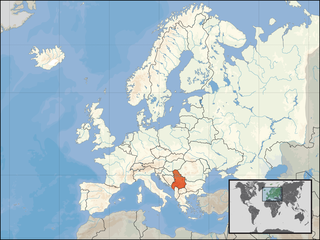
United Nations Security Council resolution 777, adopted unanimously on 19 September 1992, after reaffirming Resolution 713 (1992) and all subsequent resolutions on the topic, the Council considered that, as the state known as the Socialist Federal Republic of Yugoslavia (SFRY) had ceased to exist, it noted that under Resolution 757 (1992), the claim by the Federal Republic of Yugoslavia to continue automatic membership in the United Nations was not widely accepted and so determined that membership of the SFRY in the United Nations could not continue. Therefore, the Council recommended to the General Assembly that the Federal Republic of Yugoslavia cease participation in the General Assembly and apply for membership in the United Nations.

United Nations Security Council resolution 821, adopted on 28 April 1993, after reaffirming Resolution 713 (1991) and all subsequent resolutions, the council also recalled resolutions 757 (1992), 777 (1992) and General Assembly Resolution 47/1 (1992) which stated that the state formerly known as the Socialist Federal Republic of Yugoslavia had ceased to exist and that it should apply for membership in the United Nations and until then should not participate in the General Assembly.
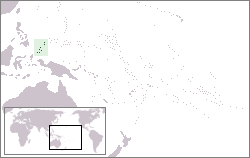
United Nations Security Council resolution 963, adopted unanimously on 29 November 1994, after examining the application of the Republic of Palau for membership in the United Nations, the Council recommended to the General Assembly that Palau be admitted.

United Nations Security Council resolution 1426, adopted without a vote on 24 July 2002, after examining the application of the Swiss Confederation for membership in the United Nations, the Council recommended to the General Assembly that Switzerland be admitted.
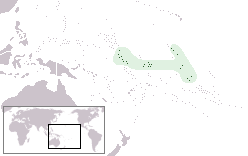
United Nations Security Council resolution 1248, adopted without a vote on 25 June 1999, after examining the application of the Republic of Kiribati for membership in the United Nations, the Council recommended to the General Assembly that Kiribati be admitted, bringing total membership of the United Nations to 186.
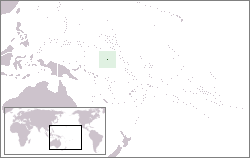
United Nations Security Council resolution 1249, adopted on 25 June 1999, after examining the application of the Republic of Nauru for membership in the United Nations, the Council recommended to the General Assembly that Nauru be admitted, bringing total membership of the United Nations to 187.

United Nations Security Council resolution 1326, adopted without a vote on 31 October 2000, after examining the application of Federal Republic of Yugoslavia for membership in the United Nations, the Council recommended to the General Assembly that Yugoslavia be admitted.

United Nations Security Council resolution 1414, adopted without a vote on 23 May 2002, after examining the application of the Democratic Republic of East Timor (Timor-Leste) for membership in the United Nations, the Council recommended to the General Assembly that East Timor be admitted.

The Republic of Korea and the Democratic People's Republic of Korea were simultaneously admitted to the United Nations (UN) in 1991. On 8 August 1991, the UN Security Council passed Resolution 702, recommending both states to the General Assembly for membership. On 17 September 1991, the General Assembly admitted both countries under Resolution 46/1.
Serbia joined the United Nations on November 1, 2000, as the Federal Republic of Yugoslavia. The previous Yugoslav state was one of the original 51 member states of the United Nations.

Democratic Federal Yugoslavia was a charter member of the United Nations from its establishment in 1945 as the Socialist Federal Republic of Yugoslavia until 1992 during the Yugoslav Wars. During its existence the country played a prominent role in the promotion of multilateralism and narrowing of the Cold War divisions in which various UN bodies were perceived as important vehicles. Yugoslavia was elected a non-permanent member of the United Nations Security Council on multiple occasions in periods between 1950 and 1951, 1956, 1972–1973, and 1988–1989, which was in total 7 years of Yugoslav membership in the organization. The country was also one of 17 original members of the Special Committee on Decolonization.
















